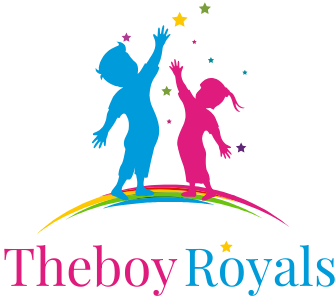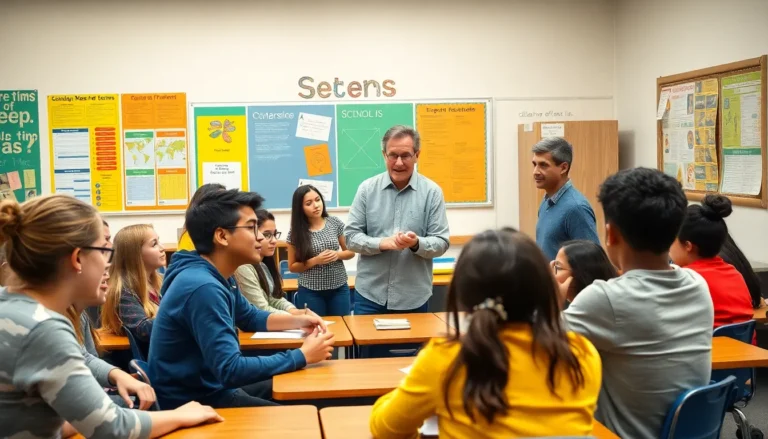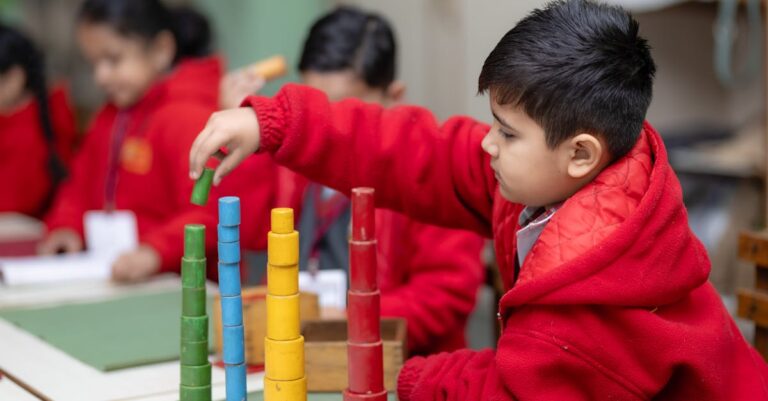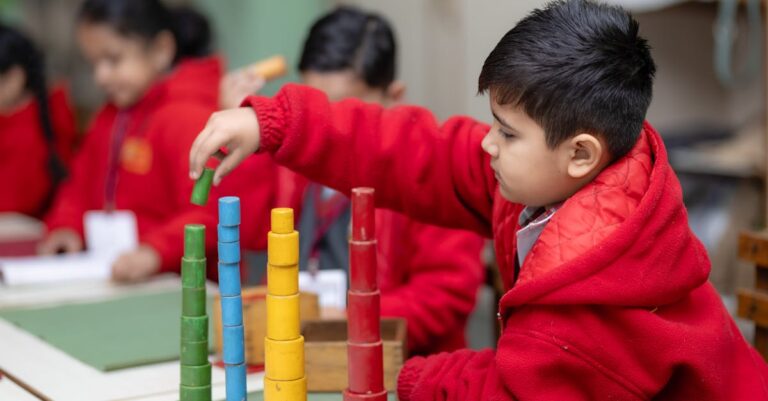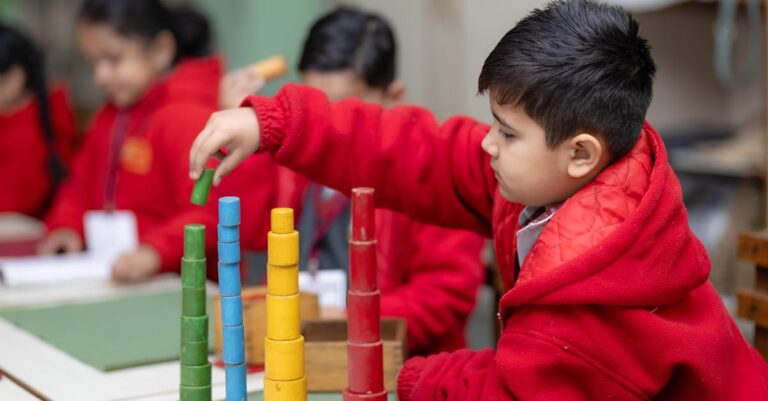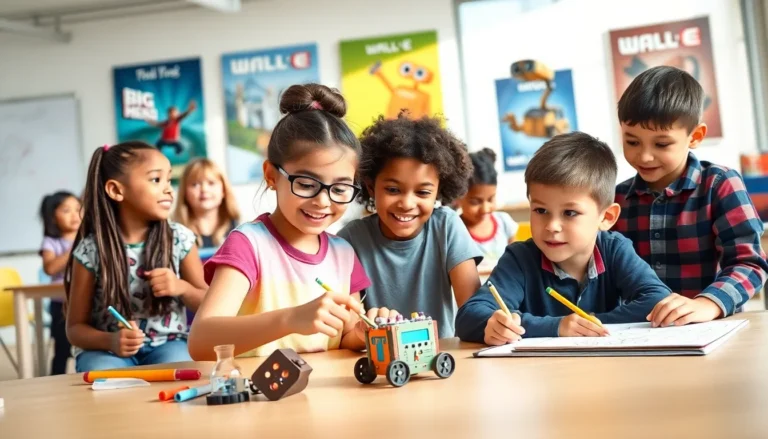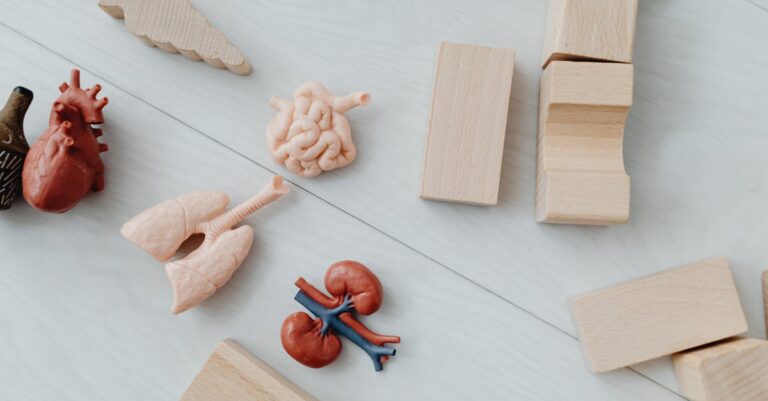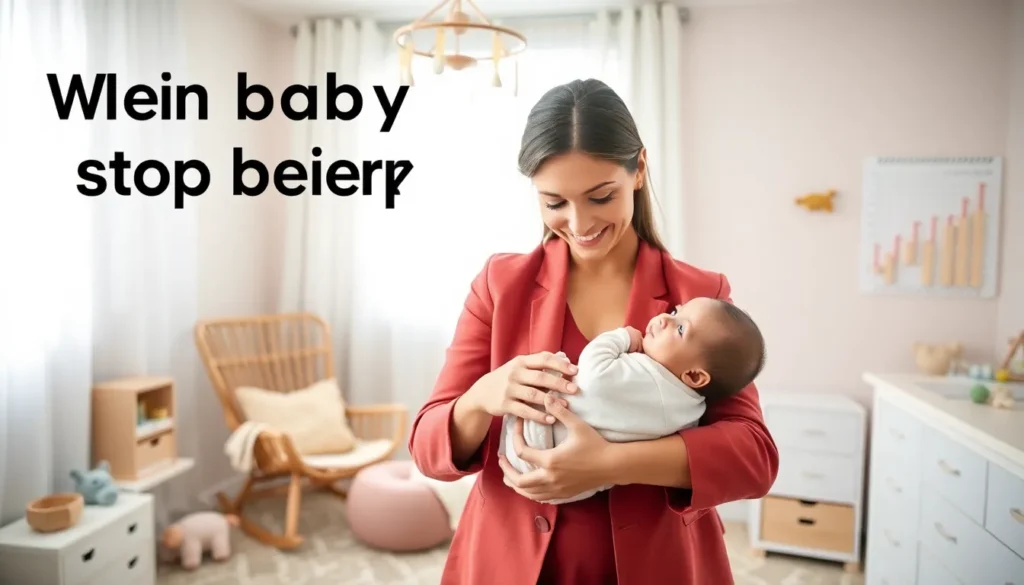Table of Contents
ToggleLet’s face it: the moment that tiny bundle of joy arrives, it’s hard not to get a little obsessed. Between gentle coos and those puzzling expressions, new parents are often tracking every breath and giggle. But amidst all this excitement, one burning question lurks in the back of their minds, when do babies stop being newborns? It’s a great question and, spoiler alert, the answer might be closer than you think. This article dives into the developmental stages of your little one, ensuring you’re equipped with all the knowledge you need as you navigate this thrilling journey.
Understanding Newborns and Their Development
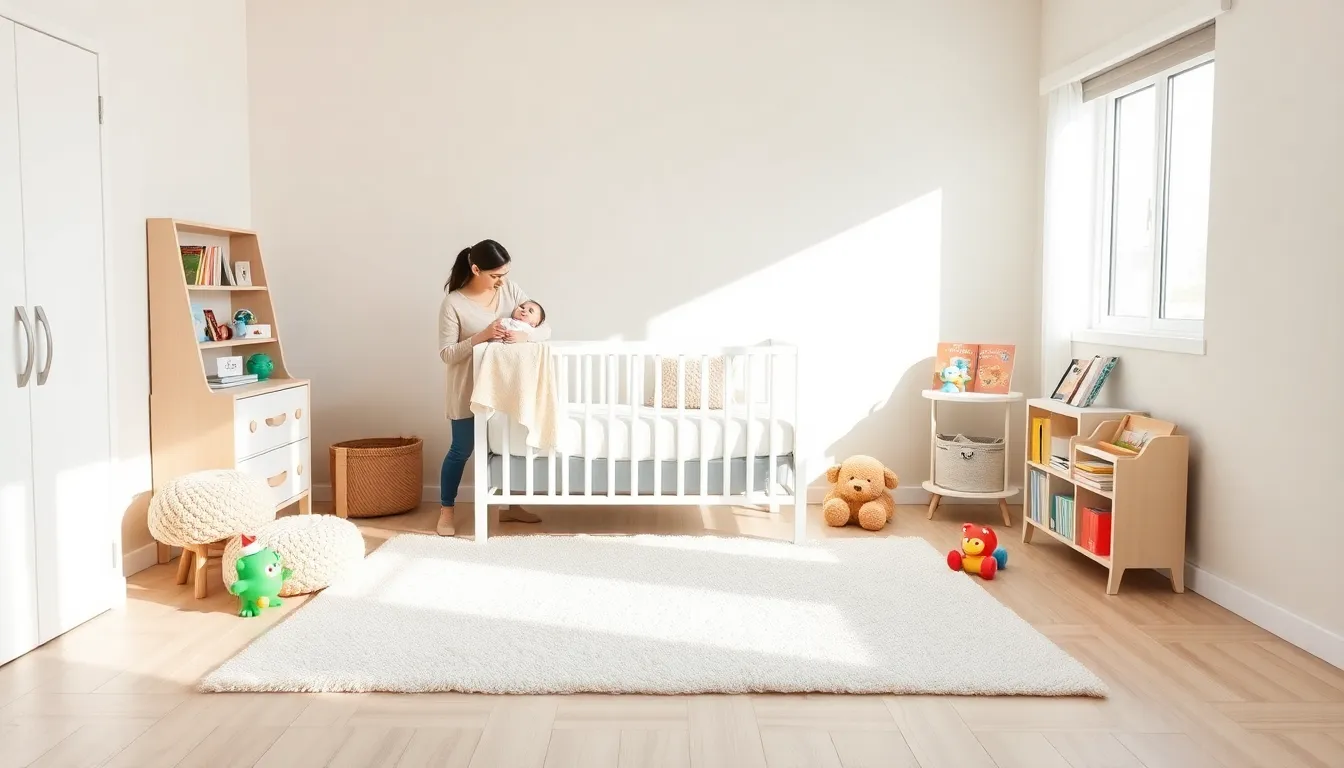
Newborns are fascinating creatures, aren’t they? From the moment they enter the world, they begin a rapid journey of growth and change. Defined as infants from birth to roughly two months, newborns are known for their exquisite helplessness. But there’s more than meets the eye. During this time, newborns are undergoing several crucial developments.
First and foremost, everything they experience is new. Stimuli like light and sound can be both overwhelming and intriguing. Vision is fuzzy, and it can take some time for them to focus on faces or colorful toys. A newborn’s social skills begin to emerge, although mostly they’ll just be looking at the world with wide-eyed wonder. That’s why every little coo or yawn seems like a monumental achievement.
Also, physical development is also in full swing. Although a newborn spends most of their time sleeping, their body is busy adjusting to life outside the womb. Reflexes like rooting and grasping are present, showcasing just how instinct-driven these tiny humans really are.
Stages of Infant Development
Navigating the journey from newborn to infant involves several key developmental stages, each marked by exciting milestones. It’s important for parents to understand these stages, as they offer both reassurance and insight into their child’s growing independence.
Physical Growth Milestones
Around the two-month mark, parents will start noticing significant physical growth in their little ones. By this time, many babies can lift their heads during tummy time and follow moving objects with their eyes. The typical weight gain varies, but research suggests that most newborns double their birth weight by around five months. Also, don’t be surprised if you’re already ditching those newborn outfits in favor of clothes labeled three to six months.
Cognitive and Emotional Development
The cognitive development of infants generally takes off around the two to four-month stage, with babies becoming more aware of their surroundings. They start responding to sounds more noticeably and may even smile socially, this is more than just gas. Emotional development is impressive too, as they begin to express a range of feelings, from joy to frustration, often as subtle as a new type of cry.
Typical Newborn Characteristics
Every newborn exhibits some common characteristics that define this stage. They often have loose, wrinkled skin and may be covered in something called vernix, a natural moisturizer from the womb. Reflexes are present, which can make the baby seem extra endearing (or sometimes chaotic.). And let’s not forget the utterly adorable way they curl up when held.
Around the end of the newborn stage, you’ll start to see shifts in behavior. For instance, while newborns typically sleep for about 16 to 18 hours a day, infants will gradually become more alert and may even develop a preferences for certain sounds or smells, often choosing mom or dad’s voice over the rest of the world.
Transitioning to Infancy: Key Signs
As your baby grows, you might begin to wonder when the newborn phase officially ends. Generally, this transition occurs around the two to three-month mark. What changes can you expect?
Firstly, mobility will start to expand. Your once-immobile newborn will start showing signs of movement, be it wiggling or beginner rolls. They’ll become more expressive, displaying facial expressions that hint at emotions ranging from curiosity to glee. This is also a good time to prepare for different types of stimulation, infants will become more responsive and interested in interactive play.
What to Expect After the Newborn Stage
Post-newborns are often more socially engaged. You might notice your baby beginning to respond to laughter with giggles and sounds, a delightful interaction that fills any parent’s heart with joy. Also, their desire for interaction often heightens. They may enjoy facing outward during walks or playtime, craving more visual stimuli.
Managing Parental Expectations During This Transition
As delightful as this stage is, it’s important for parents to manage their expectations. Growth and development don’t always happen on schedule, and each baby is unique. They will accomplish milestones at their own pace, and that’s completely normal. Some babies may begin to transition into this new phase sooner, while others may take a little longer.
To make this transition smoother, parents should look for opportunities to play and engage with their infants. This helps with cognitive and emotional development. Implementing routines, including feeding, play, and sleep schedules can further enhance this process. Plus, when parents feel more at ease, that calm energy radiates to their little ones.
